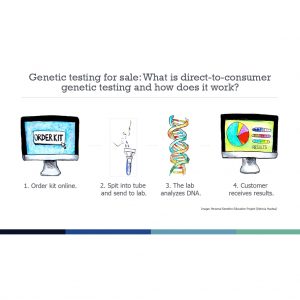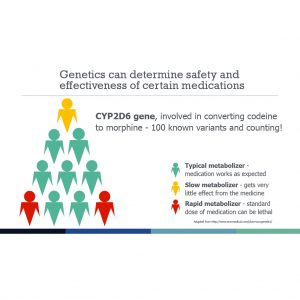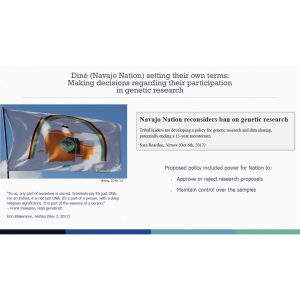
pgEd’s Introduction to Personal Genetics lesson plan offers an accessible, comprehensive and engaging approach to bring students into the urgently needed conversation about the benefits and implications of genetic technologies. This is a major revision of our previous lesson of the same name, and we are thrilled that this is getting into the hands of teachers and students to spark conversations in classrooms and beyond.
Broken into four “chapters”, this piece can be taught within 1-2 class periods, or presented one section at a time, aligned with particular elements of the biology curriculum. Part I is a big picture look at technology advances and the democratization of genetic information due to direct to consumer testing, as well as an overview of emerging applications of genetics.

Part II focuses more closely on health and medicine applications. For example, we offer some practical information while looking at the genetics involved in the story, “Why Codeine is Dangerous in Some Kids after Tonsillectomy”. Students will meet Layla Richards, the first person to receive gene-editing immune cells in an effort to treat her cancer in “A Groundbreaking Gene-Editing Therapy Eliminated Cancer in Two Infants”.
Part III is an introduction to the scientific, social, and personal dimensions of learning about one’s ancestry via genetic testing.

And finally, Part IV introduces the social issues genetics is bringing to the forefront, such as the new uses of DNA within the criminal justice system, the legacy of the Tuskegee experiments, and a look at how the Diné people (Navajo Nation) is pioneering new models of participation and informed consent in an effort to reap the benefits and avoid the harms from genetics.
With an interactive and engaging classroom activity, where students are asked to use the evidence and ideas from the lesson to make some judgements about how they may or may not want to use genetics in their own lives, we believe this lesson gives students a strong foundation to begin an exploration of personal genetics and the many associated benefits, implications and questions.
We welcome questions, comments and feedback on our lesson plans (click here).
